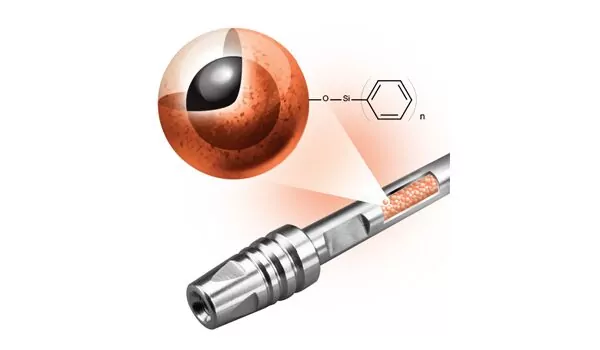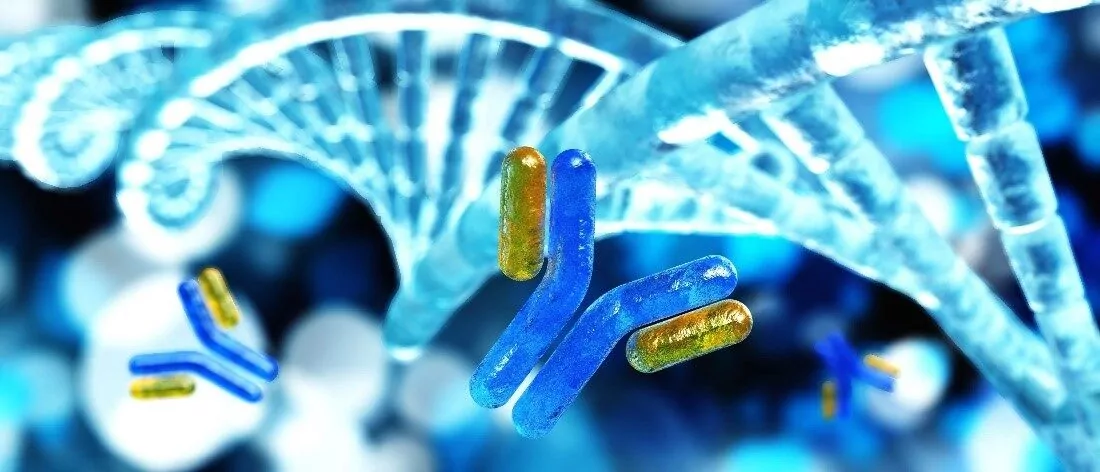Setting a New Standard for Reserved-Phase Separations of Monoclonal Antibodies and Antibody Drug Conjugates

BioResolve RP mAB Polyphenyl Columns
In 2015 he was diagnosed with metastatic melanoma. When, in March of 2016, former President Jimmy Carter’s doctors declared him disease-free, the news of his remission stunned the world.
The cancer drug he received is Merck’s monoclonal antibody, Keytruda, which targets a genetic mutation in certain cancer patients. President Carter was lucky to be one of them.
Keytruda is not the first cancer immunotherapy on the market, and it is certainly is not the last.
As they make their way through the drug development pipeline, these monoclonal antibodies (mAbs) along with antibody drug conjugates (ADCs) undergo extensive testing. Unlike small molecule drugs, though, they are much tougher to characterize. Analytical chemists know this — which is why they’ve turned to Waters for help.
Introduced in early 2018, Waters’ BioResolve RP mAb Polyphenyl solid-core Columns are designed for the reversed-phase analysis of intact or sub-unit-digested monoclonal mAbs as well as antibody drug conjugates using LC-UV and LC-MS. These columns establish a new industry standard for separation selectivity, efficiency, sample recovery, and low injection-to-injection carryover even when operated at lower temperatures.
The combination of the BioResolve RP mAb Polyphenyl Column 450 Å solid-core particle design and proprietary polyphenyl ligand bonding makes it especially well-suited for reversed-phase separations of intact mAbs, IdeS generated fragments and similarly sized proteins.

Customer evaluation
Jacquelynn Smith, a member of Pfizer’s Analytical Research and Development Department in St. Louis, Missouri, U.S., evaluated the new columns and had this to say about them.
“The newly introduced BioResolve RP mAb Polyphenyl wider pore Column provides superior recovery, separation, and resolution of therapeutic monoclonal antibody (mAb) subunits and domains, as compared to other RP C4 columns on the market,” says Smith. “This resulted in higher quality product profiles for mAbs and antibody drug conjugates, especially when hydrophobic subunits and domains were encountered.
“The BioResolve RP mAb Polyphenyl Column addresses the key challenges of mAb and ADC subunit/domain analysis, helps toward right-first time analyses, and will be a valuable addition to our characterization toolbox,” says Pfizer’s Jacquelynn Smith.
More than just a column
Users of BioResolve brand columns not only receive a column, they also get application-focused standards, an enhanced level of applications support to help ensure that they can consistently and reliably perform state-of-the-art bioseparations. Templated methods are also available. In addition, the columns are shipped with the same reduced IdeS-digested NIST reference material that Waters uses to quality-test each batch of stationary phase.
The BioResolve RP mAb Polyphenyl 450 Å, 2.7-µm Columns are available in lengths of 50, 100, or 150 millimeters and internal diameters of 2.1 or 4.6 millimeters. They are compatibility with UPLC, UHPLC, or HPLC instrumentation from a variety of vendors, and in particular for use with Waters’ ACQUITY UPLC H-Class PLUS Bio System and ACQUITY Arc Bio System. This facilitates easy method transfer between discovery, development, and manufacturing/QC applications.
With the introduction of BioResolve RP mAb Polyphenyl Columns, Waters continues its commitment to the biopharmaceutical industry by meeting the needs of analytical scientists and lab managers across the discovery, development and manufacturing pipeline.
Featured application notes using the BioResolve RP mAb Column:
- High-Resolution Separation of Intact Antibodies
- High-Throughput Analysis of Antibody Subunits
- LC-MS Characterization of mAb Subunits
Popular Topics
ACQUITY QDa (16) bioanalysis (11) biologics (14) biopharma (26) biopharmaceutical (36) biosimilars (11) biotherapeutics (16) case study (16) chromatography (14) data integrity (21) food analysis (12) HPLC (15) LC-MS (21) liquid chromatography (LC) (19) mass detection (15) mass spectrometry (MS) (54) method development (13) STEM (12)


